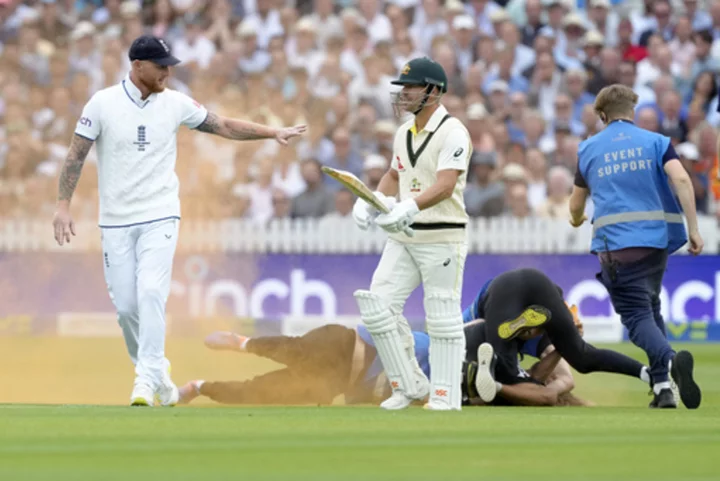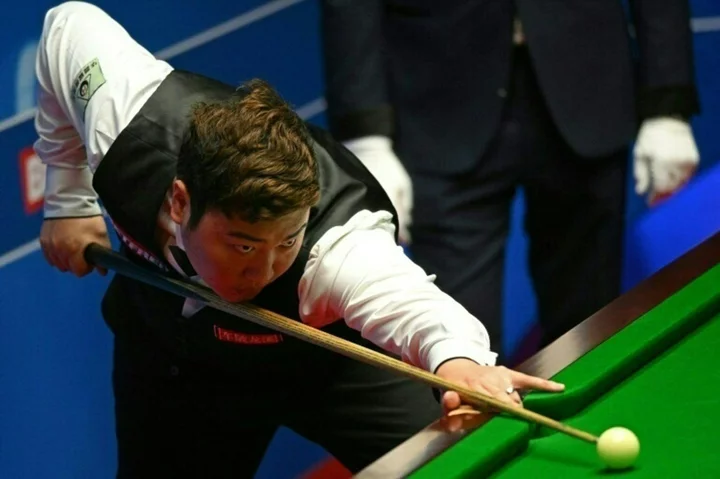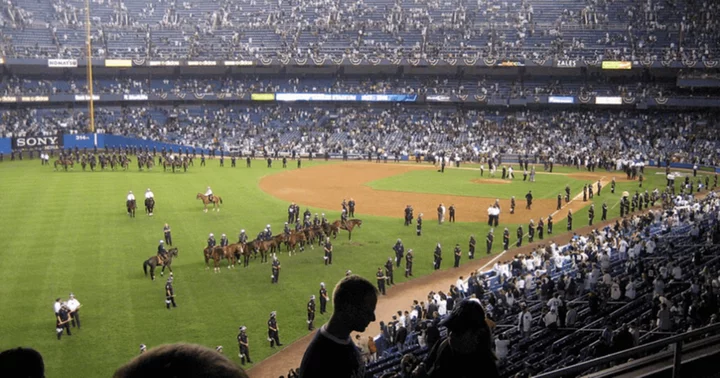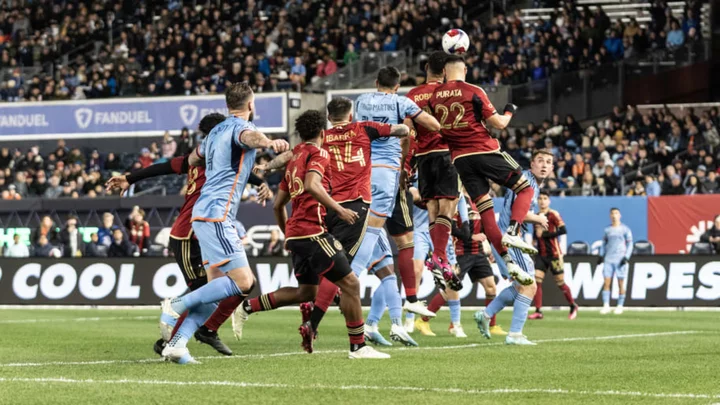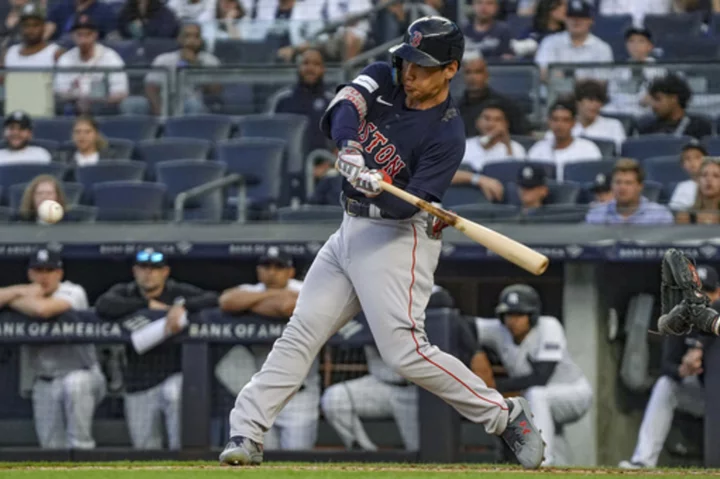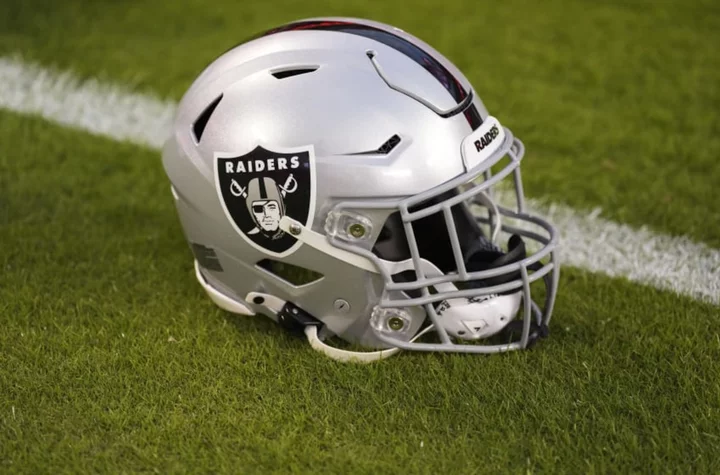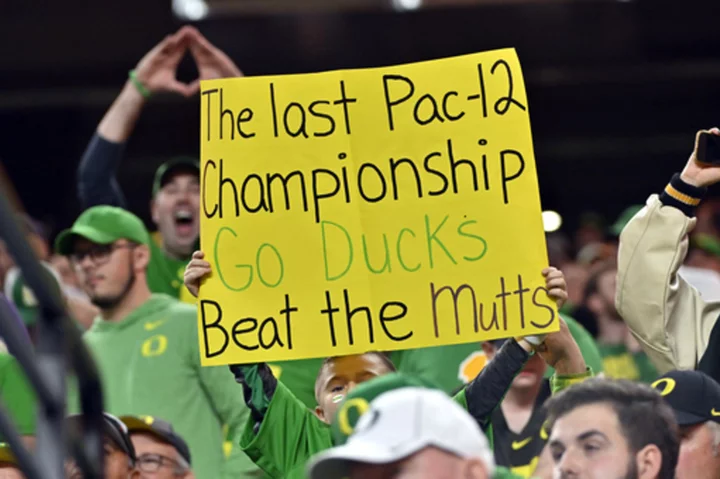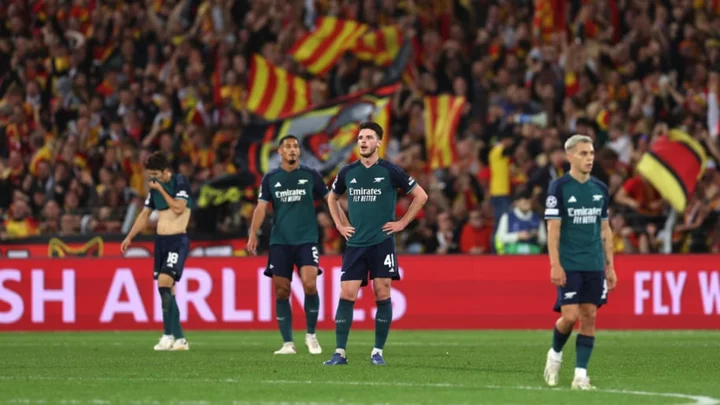Harry Kane is Bundesliga’s greatest weapon in battle for eyeballs
“It is definitely not going to stay stuck in my head,” said Jamal Musiala, but it will probably remain lodged in the minds of many in the Dortmund area. It was the late goal the 20-year-old scored at Koln on the last day of the season, meaning Bayern Munich won their 11th consecutive Bundesliga. By default, perhaps, given that Borussia Dortmund spurned a golden chance to end the longest spell of domination in the Bundesliga’s 60-year history, missing a penalty and going 2-0 down at home to Mainz. An eventual 2-2 draw left Dortmund in their familiar role: in seven of those 11 seasons, they have finished runners-up to Bayern. Summer in Germany has been shaped by a trio who could have been England teammates: Musiala, the Stuttgart-born, Whitgift School-educated prodigy who chose to play for Germany; Jude Bellingham, the Bundesliga’s reigning Player of the Year but whose knee injury left him an unused substitute in Dortmund’s final-day heartbreak and who then decamped for Real Madrid; and Harry Kane, the £100m man who is the most expensive signing in the division’s history. There is a temptation to brand it as the biggest in years, too, though in reality last summer Sadio Mane joined Bayern, a few months before finishing as the runner-up in the Ballon d’Or and from a club, in Liverpool, at a rather higher ebb than Tottenham are now. Yet the England captaincy confers status and, while the Bundesliga has proven itself as a finishing school for young British talents, most notably Bellingham and Sancho, the 30-year-old Kane arrives at the peak of his powers. He draws attention to a division that can be both admired for its principles and feel overlooked in the battle for global television ratings. His league debut, at Werder Bremen on Friday, is the biggest game in world football at the time: his home bow, against Augsburg on Sunday week, clashes with Newcastle against Liverpool, plus Barcelona’s trip to Villarreal. Viewing figures for each may be instructive. “Harry Kane will not only strengthen FC Bayern but also be a real asset to the entire Bundesliga,” said Bayern president Herbert Hainer. Arguably, however, there is a contradiction there: Kane makes Bayern likelier Champions League winners but while the Bundesliga has had competitiveness and social mobility in most other sections of the table, not at the top; until last season, anyway, and Kane could reassert Bayern’s superiority. Only goal difference separated them and Dortmund in May, but seven of the Bavarians’ 11 titles have come by at least 10 points, two by more than 20, and the transfers of two Englishmen could shift the balance of power emphatically in their direction. Certainly, there are reasons to believe last season was Dortmund’s big chance: when Bayern had lost Robert Lewandowski when Mane’s move didn’t work out, when Julian Nagelsmann was sacked, when Thomas Tuchel got worse results than his predecessor. But the former Dortmund coach Tuchel provides one of the subplots this season: given more power on Sabener Strasse after chief executive Oliver Kahn and sporting director Hasan Salihamidzic were fired, the Anglophile manager tried to sign everyone from Declan Rice to Kyle Walker. A bid for Kepa Arrizabalaga, a goalkeeper he benched at Chelsea, failed, leaving Bayern looking for a deputy for the still-injured Manuel Neuer. In Kim Min-jae, however, he has a high-class recruit in the middle of the defence and with Kane, a conventional No 9, the side is otherwise strengthened (the post-Lewandowski void was not just felt at Bayern: the Pole had been the division’s top scorer with 35 in his final season whereas last year, for the first time in Bundesliga history, no one got more than 16). Yet Tuchel has underachieved so far and Bayern can be a febrile, political club. Dortmund, meanwhile, showed great unity after crushing disappointment. Edin Terzic, the coach and lifelong fan, was tearful after the failure to beat Mainz. The process of replacing Bellingham has started with the signings of midfielders Felix Nmecha and Marcel Sabitzer, the latter from Bayern; the trade between them has continued with Raphael Guerreiro going in the other direction. Dortmund have grounds for optimism in their vastly superior form after the World Cup, when they won 15 and lost just one of 19 games, and in the prospect of what Sebastien Haller and Karim Adeyemi might do: neither scored a league goal before the World Cup last season, when the striker was recovering from testicular cancer and the winger made a slow start, but each is a match-winner. RB Leipzig condemned Kane to an unhappy start by beating Bayern 3-0 in the Super Cup. It amounted to an eloquent response to the loss of their four best players, in Josko Gvardiol, Dominik Szoboszlai, Christopher Nkunku and Bayern’s new recruit Konrad Laimer. The hugely gifted loanee from Paris Saint-Germain, Xavi Simons, and the RB Salzburg striker Benjamin Sesko look like the pick of their signings but logically Marco Rose’s team are weaker now. The Bundesliga may have a big three of sorts now, but that offers others the chance to play Champions League football. Union Berlin’s swift rise was capped by their fourth-place finish last season; Brenden Aaronson and Robin Gosens are among their summer additions. Freiburg and Eintracht Frankfurt, two who have shown their competitiveness on the European stage in the last two seasons, are contenders to break into the top four. So are Bayer Leverkusen, joined by Granit Xhaka and led by Xabi Alonso, who could further the Bundesliga’s reputation as a breeding ground for coaching as well as playing talent. Intrigue is offered, too, by Heidenheim, promoted to the Bundesliga for the first time in their history and from a town of fewer than 50,000 people; there is room for each one and more in the grounds of five second-flight clubs, in Schalke, Hamburg, Fortuna Dusseldorf, Nurnberg and Kaiserslautern. With Barcelona’s Nou Camp and Real Madrid’s Santiago Bernabeu undergoing works, Dortmund should have the biggest gates on the continent this season. The vast capacities of its grounds facilitate lower ticket prices and add to the popularity of German football: the Bundesliga’s average attendance last season, of 42,966, was the largest in Europe. Plenty of eyes will be on Kane in Germany, though the acid test may be how many outside Germany tune in, just as the test for Bayern is not whether they can win a 12th Bundesliga in a row but a seventh European Cup. Read More Harry Kane embracing new pressure after Bayern Munich move Harry Kane finally gets his move — but it’s not the one he wanted Tom Brady expects friend Harry Kane to have ‘new energy’ in Munich Lionesses and Man City celebrate success – Thursday’s sporting social Meet the 21-year-old Nigerian striker Spurs are lining up to replace Harry Kane Lionesses celebrate reaching World Cup final – Wednesday’s sporting social
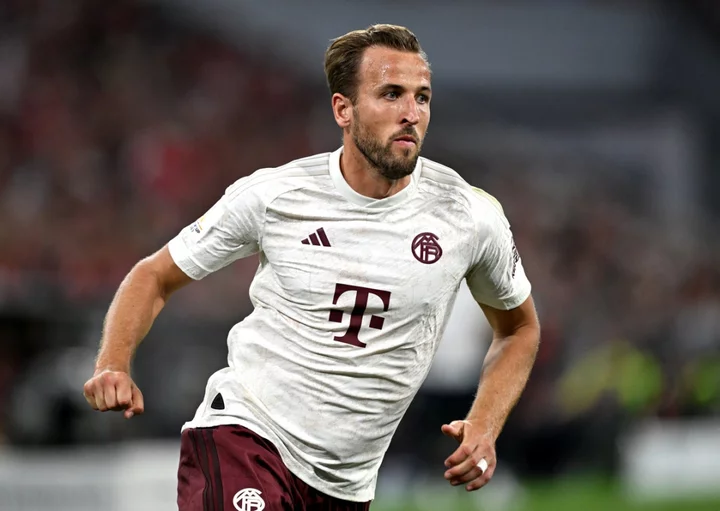
“It is definitely not going to stay stuck in my head,” said Jamal Musiala, but it will probably remain lodged in the minds of many in the Dortmund area. It was the late goal the 20-year-old scored at Koln on the last day of the season, meaning Bayern Munich won their 11th consecutive Bundesliga. By default, perhaps, given that Borussia Dortmund spurned a golden chance to end the longest spell of domination in the Bundesliga’s 60-year history, missing a penalty and going 2-0 down at home to Mainz. An eventual 2-2 draw left Dortmund in their familiar role: in seven of those 11 seasons, they have finished runners-up to Bayern.
Summer in Germany has been shaped by a trio who could have been England teammates: Musiala, the Stuttgart-born, Whitgift School-educated prodigy who chose to play for Germany; Jude Bellingham, the Bundesliga’s reigning Player of the Year but whose knee injury left him an unused substitute in Dortmund’s final-day heartbreak and who then decamped for Real Madrid; and Harry Kane, the £100m man who is the most expensive signing in the division’s history.
There is a temptation to brand it as the biggest in years, too, though in reality last summer Sadio Mane joined Bayern, a few months before finishing as the runner-up in the Ballon d’Or and from a club, in Liverpool, at a rather higher ebb than Tottenham are now. Yet the England captaincy confers status and, while the Bundesliga has proven itself as a finishing school for young British talents, most notably Bellingham and Sancho, the 30-year-old Kane arrives at the peak of his powers. He draws attention to a division that can be both admired for its principles and feel overlooked in the battle for global television ratings. His league debut, at Werder Bremen on Friday, is the biggest game in world football at the time: his home bow, against Augsburg on Sunday week, clashes with Newcastle against Liverpool, plus Barcelona’s trip to Villarreal. Viewing figures for each may be instructive.
“Harry Kane will not only strengthen FC Bayern but also be a real asset to the entire Bundesliga,” said Bayern president Herbert Hainer. Arguably, however, there is a contradiction there: Kane makes Bayern likelier Champions League winners but while the Bundesliga has had competitiveness and social mobility in most other sections of the table, not at the top; until last season, anyway, and Kane could reassert Bayern’s superiority. Only goal difference separated them and Dortmund in May, but seven of the Bavarians’ 11 titles have come by at least 10 points, two by more than 20, and the transfers of two Englishmen could shift the balance of power emphatically in their direction.
Certainly, there are reasons to believe last season was Dortmund’s big chance: when Bayern had lost Robert Lewandowski when Mane’s move didn’t work out, when Julian Nagelsmann was sacked, when Thomas Tuchel got worse results than his predecessor.
But the former Dortmund coach Tuchel provides one of the subplots this season: given more power on Sabener Strasse after chief executive Oliver Kahn and sporting director Hasan Salihamidzic were fired, the Anglophile manager tried to sign everyone from Declan Rice to Kyle Walker. A bid for Kepa Arrizabalaga, a goalkeeper he benched at Chelsea, failed, leaving Bayern looking for a deputy for the still-injured Manuel Neuer. In Kim Min-jae, however, he has a high-class recruit in the middle of the defence and with Kane, a conventional No 9, the side is otherwise strengthened (the post-Lewandowski void was not just felt at Bayern: the Pole had been the division’s top scorer with 35 in his final season whereas last year, for the first time in Bundesliga history, no one got more than 16). Yet Tuchel has underachieved so far and Bayern can be a febrile, political club.
Dortmund, meanwhile, showed great unity after crushing disappointment. Edin Terzic, the coach and lifelong fan, was tearful after the failure to beat Mainz. The process of replacing Bellingham has started with the signings of midfielders Felix Nmecha and Marcel Sabitzer, the latter from Bayern; the trade between them has continued with Raphael Guerreiro going in the other direction. Dortmund have grounds for optimism in their vastly superior form after the World Cup, when they won 15 and lost just one of 19 games, and in the prospect of what Sebastien Haller and Karim Adeyemi might do: neither scored a league goal before the World Cup last season, when the striker was recovering from testicular cancer and the winger made a slow start, but each is a match-winner.
RB Leipzig condemned Kane to an unhappy start by beating Bayern 3-0 in the Super Cup. It amounted to an eloquent response to the loss of their four best players, in Josko Gvardiol, Dominik Szoboszlai, Christopher Nkunku and Bayern’s new recruit Konrad Laimer. The hugely gifted loanee from Paris Saint-Germain, Xavi Simons, and the RB Salzburg striker Benjamin Sesko look like the pick of their signings but logically Marco Rose’s team are weaker now.
The Bundesliga may have a big three of sorts now, but that offers others the chance to play Champions League football. Union Berlin’s swift rise was capped by their fourth-place finish last season; Brenden Aaronson and Robin Gosens are among their summer additions. Freiburg and Eintracht Frankfurt, two who have shown their competitiveness on the European stage in the last two seasons, are contenders to break into the top four. So are Bayer Leverkusen, joined by Granit Xhaka and led by Xabi Alonso, who could further the Bundesliga’s reputation as a breeding ground for coaching as well as playing talent.
Intrigue is offered, too, by Heidenheim, promoted to the Bundesliga for the first time in their history and from a town of fewer than 50,000 people; there is room for each one and more in the grounds of five second-flight clubs, in Schalke, Hamburg, Fortuna Dusseldorf, Nurnberg and Kaiserslautern. With Barcelona’s Nou Camp and Real Madrid’s Santiago Bernabeu undergoing works, Dortmund should have the biggest gates on the continent this season.
The vast capacities of its grounds facilitate lower ticket prices and add to the popularity of German football: the Bundesliga’s average attendance last season, of 42,966, was the largest in Europe. Plenty of eyes will be on Kane in Germany, though the acid test may be how many outside Germany tune in, just as the test for Bayern is not whether they can win a 12th Bundesliga in a row but a seventh European Cup.
Read More
Harry Kane embracing new pressure after Bayern Munich move
Harry Kane finally gets his move — but it’s not the one he wanted
Tom Brady expects friend Harry Kane to have ‘new energy’ in Munich
Lionesses and Man City celebrate success – Thursday’s sporting social
Meet the 21-year-old Nigerian striker Spurs are lining up to replace Harry Kane
Lionesses celebrate reaching World Cup final – Wednesday’s sporting social


